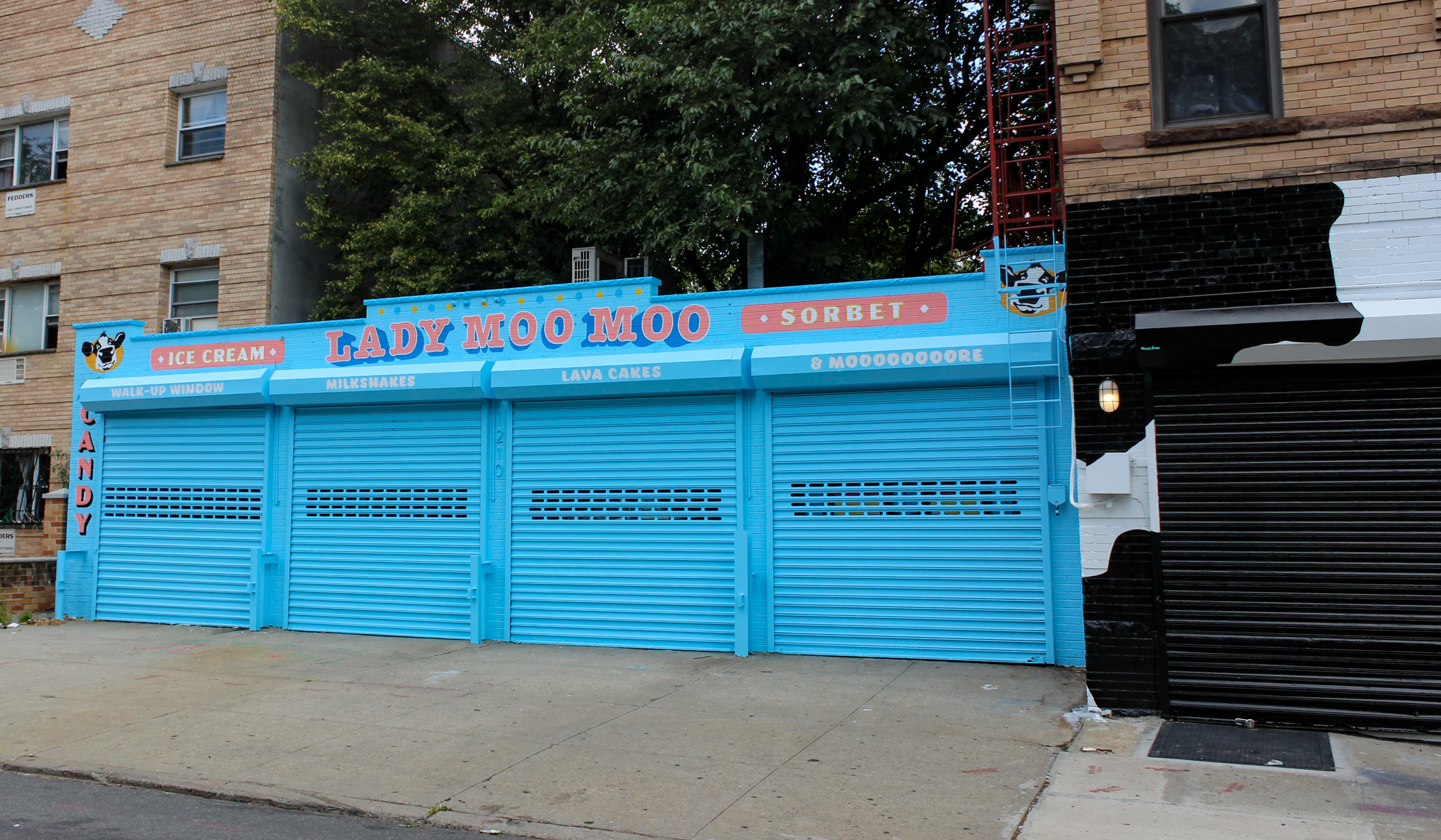Attendence Falls at Brooklyn Open Houses
Open houses are rarely (maybe never?) mentioned as places to seek solace within the city, but the NY Observer finds they may be approaching a Zen-like quality because, well, nobody’s at them. “It was the Sunday before the European markets began to tumble, during peak open house hours, and the buyer traffic through Brooklyn’s newer…

 Open houses are rarely (maybe never?) mentioned as places to seek solace within the city, but the NY Observer finds they may be approaching a Zen-like quality because, well, nobody’s at them. “It was the Sunday before the European markets began to tumble, during peak open house hours, and the buyer traffic through Brooklyn’s newer towers was slow,” they write. “Extra special amenities played an integral role in luring buyers when neighborhood amenities were lacking, but with prices still sky high and memories of the borough’s boom fading fast, it seems the only reasonable options are to start cutting prices or to offer condos as rentals,” opines the Observer. “Both of these things are already happening. A pretty kitchen backsplash and walk-in closets just won’t cut it anymore.” Well, what should these buildings do to fill up those open houses again?
Open houses are rarely (maybe never?) mentioned as places to seek solace within the city, but the NY Observer finds they may be approaching a Zen-like quality because, well, nobody’s at them. “It was the Sunday before the European markets began to tumble, during peak open house hours, and the buyer traffic through Brooklyn’s newer towers was slow,” they write. “Extra special amenities played an integral role in luring buyers when neighborhood amenities were lacking, but with prices still sky high and memories of the borough’s boom fading fast, it seems the only reasonable options are to start cutting prices or to offer condos as rentals,” opines the Observer. “Both of these things are already happening. A pretty kitchen backsplash and walk-in closets just won’t cut it anymore.” Well, what should these buildings do to fill up those open houses again?
The Quietest Places To Pass a Sunday [NY Observer]
Photo by @chris.





Ugh, I meant to say 2-3 **bedroom** family size apts. Doing these posts while multi-tasking leads to lots of typos!
Wasder, Aussie, z – thanks for your responses. And Wasder is right that I did not mean we were looking for a 2-family house as an “investment” to sell off soon. If anything, we want to stay there for the rest of our lives! I just meant that it seems wiser to us to exploit our advantage of a big down payment to buy a bigger place with rental income to subsidize our mortgage. A 2-family home also allows the possibility that we could eventually take over the whole house (if we are lucky enough to have our financial circumstances improve) when our kids get older. Since we are hoping to live in a duplex of a 3 story house for the near horizon, our living space would likely not be that much bigger (and maybe even smaller) than some of the 2-3 family size apartments on the market. But we’d be providing a hedge regarding affordability, and not getting into a situation where we have to sell again soon if we feel we need more space.
Nicely done Aussie and Z. The only thing I would say about the “good investment” aspect of what you are saying z is that more than an investment, a two family house is a bit of protection against mortgage costs.
…an A to z comprehensive response:-)
miss muffett, a few points.
one: on average, families move from one home to another every 5-7 years. they may intend to stay longer, but often circumstances require a move — job change, need more space, schools, etc. so it’s wrong to assume that anyone who sells less than 5-10 years after buying is a flipper or speculator. most are just normal people.
two: you’re too quickly writing off price declines as a “paper loss” that won’t affect most people. yes, if you plan to retire in your home, then current events don’t matter. the reality is that most people have to sell in shorter time frames, and they’re likely going to take losses. (you’re right, though, that those losses could be mitigated by paying less for the next home.)
three: if you really believe it’s not a big deal for a seller to lose the bulk of his or her appreciation on a property, then i’ll send you my address, and you can write me a check for 75% of the profit you made when you sold your home. no problem, right? you’d still be doing “just fine.”
four: you complain about people who buy homes as investments. then you go on to say that you are thinking of buying a brownstone with a rental because it is a good investment. i point this out not as a “gotcha” but to illustrate that it’s not as easy as you might think to label homeowners as “speculators” or “investors.”
five: the bottom line is that in a market correction, there are winners and losers. if you’re a winner, that’s great, and i really mean that — there’s nothing wrong with being excited at falling prices. it’s wrong, though to pretend that there are no losers, or that the losers had it coming, or that losing is not all that bad.
peace out and good night!
OK, lets give this a try. Every year (including before this bubble started) thousands of people in NY bought homes for themselves and their families. They did so because their parents had told them it was a great idea, because society said it was the american dream, because they had saved all their lives and they were finally able (perhaps only just) to afford a dream that felt like it may be slipping away. In this discussion we should concentrate on these people because (despite the speculation that existed) particularly in NYC these are, by and large, the main group of people affected. To concentrate on the speculators contaminates the conversation by drawing us into a discussion about only a small segment of the equation who elected to run a business risk and have to (and I think do)accept the risks with the rewards. But they offload their houses to ordinary people of the type I have described above.
So to your question: “please explain to me, since I don’t quite understand, how many owners in NY, other than the flippers/speculators, *will* actually be hurt by a price decline”.
You have answered the question in your next sentence when you say ” My understanding is that most buyers who buy to have a home (rather than a speculative investment) PLAN to stay for quite a few years, at least 5 and often longer”
Price declines in real estate are not an isolated event. They occur in connection with, and (on the magnitude that has already occurred)cause other problems. Problems that rob people of their ability to PLAN. Job losses, declining revenue from business, margin calls on brokerage accounts, moving to keep employment, divorce and sickness as a result of financial stresses, clients going bust, investments going bad, contracts being broken and so on. If you can not see how these issues are related to declining property prices I guess that will be the subject of my next post. Perhaps people should not be able to rely on home price increases to help provide a buffer against these types of events but it is easy to see how price reductions wipe out actual equity. Money that people worked and saved for at exactly the time they need it most to protect them from the types of events above. How do you think the person you sold your home to is doing? How do you think they will do if prices drop another 10%? Unemployment increase if prices do drop another 10%, what if they lose their job? They did not buy from a speculator and they are not a speculator themselves? If the value of their home drops no further they may be able to withstand some knocks. If home prices drop no further the economy may start on the road to recovery and the healing of the credit markets can start.
I could be wrong but I think that comparatively, New Yorkers were responsible in their borrowing, which is why real estate has held up better here. There is a fundamental reason for NYC performance. If real estate declines further here, real estate which is already in crisis much of the country, and peoples lives, will be in ruins. This is not just about people in NYC.
Of course you want and are entitled to a house at a good price, and I think you will see the declines you are looking for, but the events that may afford you this will cause misery in many peoples lives… don’t kid yourself they wont.
Agreed. Great post Miss M.
Miss Muffett: Kudos for that post. You really put yourself into that. I personally never questioned your sincerity about what you were looking for in a house for whatever price or your motivations. It is human nature to want a good deal. I guess its just the uncertainty of wondering how much of a price meltdown is coming that makes people nervous and wary and ready to ascribe to others nefarious motives. Nobody here on this board, not even the What, will benefit from a precipitous collapse in the market. I think the points you have raised certainly are worthy of further discussion here. Hopefully Z and Aussie will weigh in.
that clearly we are all interested in. Nothing any one of us writes is really going to affect the market – it has a life of its own.
(this part of my last sentence got cut off)